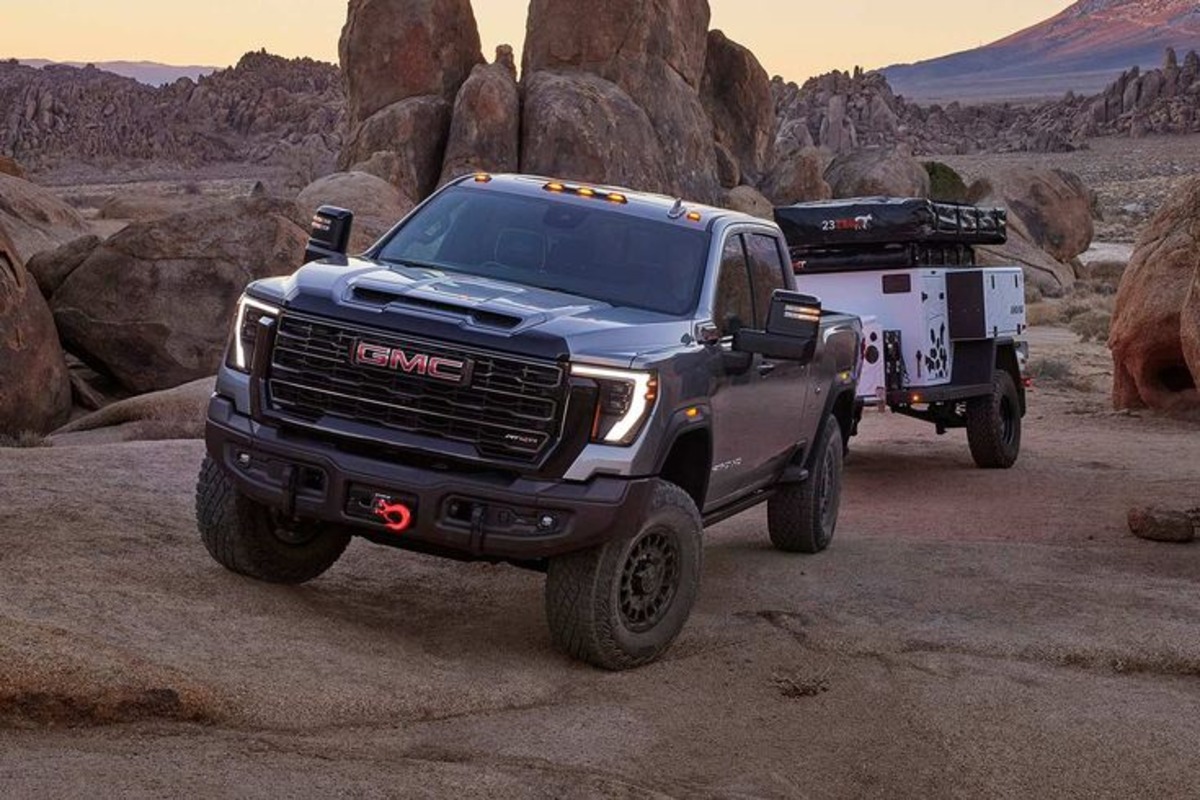GMC trucks are often celebrated for their robustness, durability, and advanced technology, but like all vehicles, some models have faced powertrain issues that tarnish their reputation for reliability. GMC is a renowned name in the truck world, particularly when it comes to heavy-duty vehicles and powerful, high-performance engines.
However, not all of their trucks and engines have lived up to the expectations set by their predecessors. Whether it’s problems with oil consumption, erratic shifting, or overheating engines, certain GMC trucks have encountered significant powertrain failures that have resulted in increased maintenance costs and frustrated owners.
While GMC trucks are generally considered durable and built to withstand tough work environments, these powertrain issues serve as a reminder that even trusted brands can sometimes fail to deliver the level of reliability expected from them.
In this article, we will explore five GMC trucks that have been plagued with unreliable powertrains. These vehicles, while having some redeeming qualities, have been consistently marked by issues that can make long-term ownership a costly and troublesome experience.
The aim is not to discredit the GMC brand as a whole, but to highlight specific models and powertrains that have underperformed, causing owners significant trouble.
By understanding the common issues with these engines and transmissions, prospective buyers can make more informed decisions and perhaps avoid potential pitfalls.
For those who are already owners of these trucks, being aware of these problems can help with proper maintenance and provide insight into what to expect when dealing with repair costs or trade-in decisions.
The importance of the powertrain in any vehicle cannot be overstated, as it is the heart of the truck’s performance. A faulty engine or transmission can lead to costly repairs and poor vehicle reliability, often diminishing the driving experience.
For a truck, which is expected to handle both everyday tasks and heavy-duty work, having a solid and dependable powertrain is essential. Unfortunately, in some GMC models, this has not been the case.
The specific issues affecting these trucks range from minor annoyances to serious, potentially catastrophic failures that can render the vehicle unusable if not addressed promptly.
Despite these challenges, GMC continues to produce some of the best trucks in the industry, with powertrains that are widely praised for their durability, smooth performance, and longevity.
However, these problematic engines and transmissions have been reminders of the occasional slip-ups that even the most established brands can encounter.
By delving deeper into these trucks with unreliable powertrains, we can better understand the specific problems that have contributed to their negative reputation and offer advice on how to address these issues if you own one of these vehicles.
Also Read: 5 Cars with Bulletproof Electronic Systems and 5 That Short Out Easily
5 GMC Trucks with Legendary Powertrains
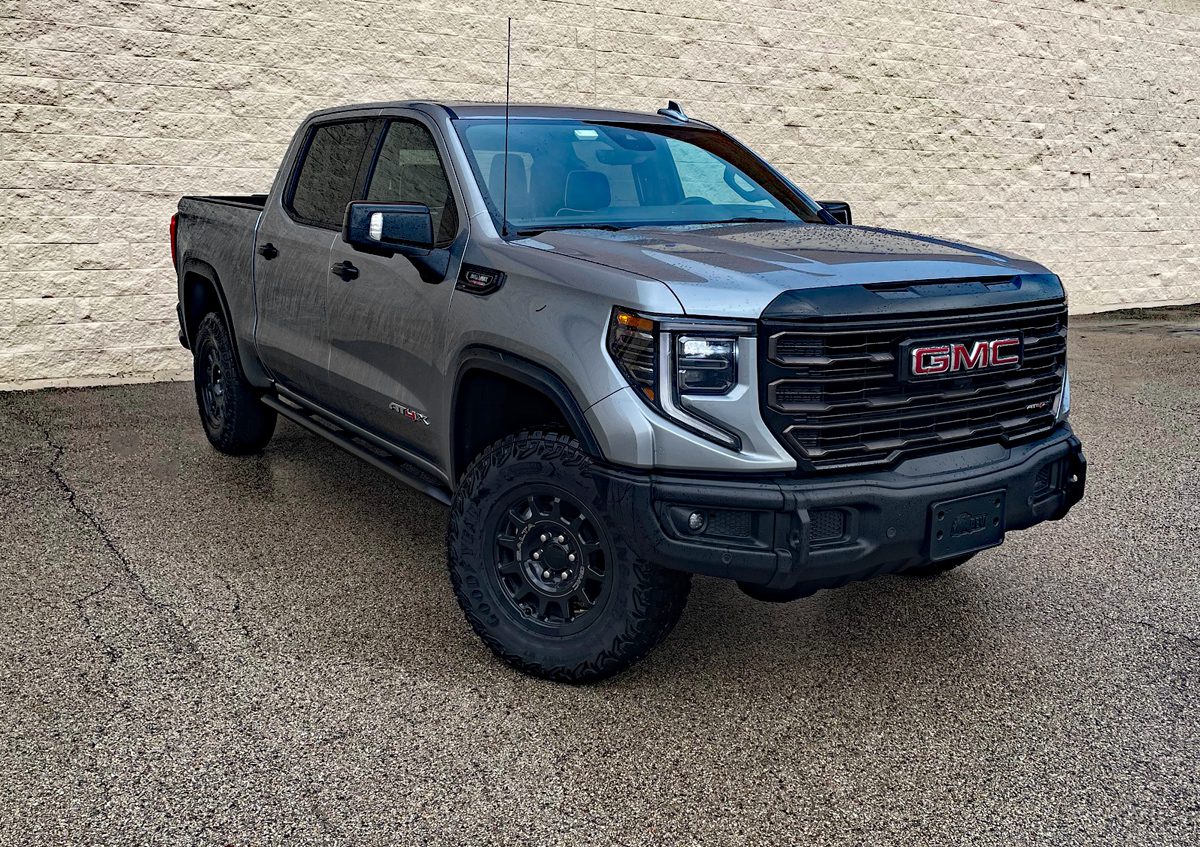
1. GMC Sierra 1500 (6.2L V8 Engine)
The GMC Sierra 1500 equipped with the 6.2L V8 engine stands as one of the most iconic and revered models in the GMC truck lineup, recognized for its unmatched blend of power, refinement, and durability.
This 6.2L engine is a true beast, producing an impressive 420 horsepower and 460 lb-ft of torque, which places it at the top of its class in terms of power output among light-duty trucks.
What makes this powertrain legendary is not just its raw power, but its ability to harness that power smoothly, delivering exceptional performance whether you’re towing a large trailer or navigating challenging terrain.
The engine’s smooth power delivery and responsiveness make it an ideal choice for truck enthusiasts who need both muscle and sophistication in their vehicle.
The 6.2L V8 is paired with an advanced 10-speed automatic transmission that allows the engine to perform optimally in a variety of driving conditions, shifting seamlessly for smooth acceleration and maintaining its efficiency during highway cruising.
This pairing not only enhances driving comfort but also contributes to fuel efficiency by allowing the engine to maintain a lower RPM during long-distance drives.
Moreover, GMC’s use of active fuel management technology in the 6.2L engine further increases its versatility by reducing fuel consumption when full power is not required, thus striking a perfect balance between power and efficiency.
Owners of the Sierra 1500 with the 6.2L engine often report high satisfaction with the truck’s towing capacity, which can exceed 12,000 pounds when properly equipped, making it an excellent choice for those who need a capable workhorse without compromising on comfort and luxury.
One of the standout aspects of the 6.2L engine is its long-term reliability. This engine is known to withstand years of heavy use, with many owners reporting their Sierra 1500 running strong well over 200,000 miles with minimal issues. Regular maintenance plays a significant role in ensuring the engine continues to perform at its best, but even with high mileage, the 6.2L V8 has proven to be incredibly durable.
This, combined with its towing capacity, refined driving experience, and dependable performance, is why the GMC Sierra 1500 with the 6.2L engine continues to be regarded as one of the top choices in the full-size truck market, solidifying its place as a legend in the industry.
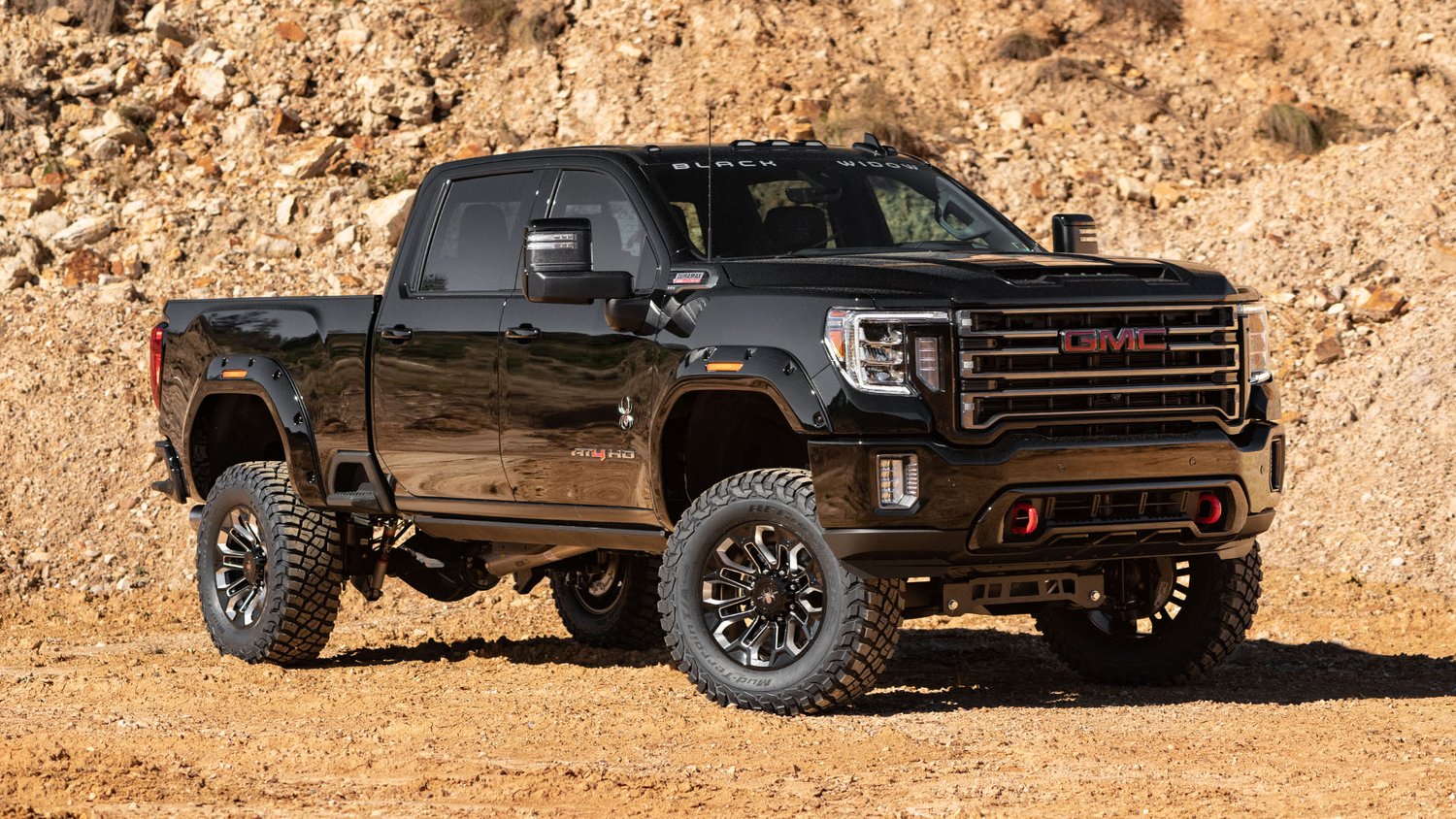
2. GMC Sierra 2500HD (Duramax 6.6L Turbo-Diesel V8)
The GMC Sierra 2500HD, equipped with the Duramax 6.6L Turbo-Diesel V8 engine, is a force to be reckoned with in the heavy-duty truck segment.
The Duramax engine is renowned for its unparalleled towing and hauling capabilities, delivering a robust 445 horsepower and a staggering 910 lb-ft of torque, making it a true workhorse capable of pulling enormous loads with ease.
What sets the Duramax engine apart is its legendary durability and performance under extreme conditions. Whether it’s towing a massive fifth-wheel trailer, hauling construction equipment, or carrying heavy payloads on rough, uneven terrain, the Duramax engine has proven time and again to perform flawlessly.
This engine is engineered to handle the most demanding jobs, providing a level of reliability that is critical for those who use their trucks for commercial purposes, such as contractors and fleet managers.
One of the key strengths of the Duramax 6.6L is its low-end torque, which provides excellent pulling power right from the start. This feature is particularly useful when dealing with heavy loads that need to be moved at low speeds, such as during construction projects or when navigating through difficult off-road environments.
The engine is paired with the Allison 10-speed automatic transmission, which offers precise shifting, improved performance, and greater towing capabilities than older transmissions. The pairing of the Duramax engine with the Allison transmission has been lauded by both professionals and enthusiasts for its ability to handle the toughest tasks with minimal fuss.
In addition to its performance, the transmission’s smooth shifting and ability to handle heavy-duty loads make it an essential part of the truck’s ability to withstand years of demanding work.
Duramax engines are also known for their long-term durability, with many owners reporting that their trucks easily surpass the 300,000-mile mark with proper care.
The engine’s robust construction, coupled with GMC’s commitment to building tough, reliable trucks, means that the Duramax-powered Sierra 2500HD is often seen as one of the most dependable choices for heavy-duty trucks.
This combination of strength, reliability, and long-lasting performance makes the Sierra 2500HD with the Duramax 6.6L Turbo-Diesel engine a legend in the world of heavy-duty vehicles, revered by those who rely on their trucks for serious work.
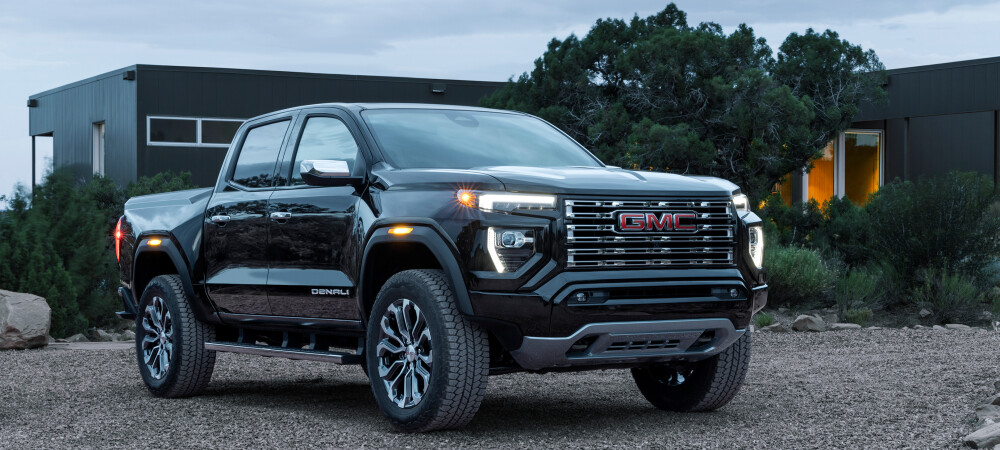
3. GMC Canyon (3.6L V6 Engine)
The GMC Canyon is a standout in the midsize truck category, offering a unique combination of power, performance, and dependability. The Canyon’s 3.6L V6 engine has proven itself to be one of the most reliable and efficient powertrains in its class, producing 308 horsepower and 275 lb-ft of torque.
While it may not be the most powerful engine in the GMC lineup, it strikes a perfect balance between performance and fuel efficiency, making it an ideal choice for those who need a capable truck for both work and everyday driving.
The engine’s performance is smooth and responsive, whether you’re navigating city streets or venturing off-road, providing ample power for light towing, hauling, and off-road adventures.
The 3.6L V6 is paired with a 6-speed automatic transmission, offering a refined driving experience that prioritizes smoothness and efficiency. The engine’s power delivery is well-suited for the Canyon’s midsize frame, making it nimble and capable of handling both short commutes and longer trips without sacrificing comfort.
One of the primary advantages of the 3.6L engine in the Canyon is its efficiency. Midsize trucks are often sought after for their better fuel economy compared to full-size trucks, and the Canyon’s 3.6L engine delivers excellent gas mileage for its class.
This efficiency, combined with its impressive power output, gives the Canyon a significant edge in terms of value for those seeking a reliable truck that doesn’t break the bank at the pump.
Another noteworthy feature of the 3.6L V6 engine in the Canyon is its reliability over time. This engine is known to last well beyond 200,000 miles with proper maintenance, making it an excellent choice for long-term ownership.
Many Canyon owners appreciate its ability to withstand the rigors of daily use, especially in work environments that involve moderate towing or off-roading.
Additionally, the engine’s smooth operation and low maintenance costs contribute to the Canyon’s reputation for reliability and longevity. For those seeking a versatile, dependable midsize truck, the GMC Canyon with the 3.6L V6 engine is widely regarded as one of the best choices on the market.

4. GMC Sierra 3500HD (Duramax 6.6L Turbo-Diesel V8)
Much like its 2500HD sibling, the GMC Sierra 3500HD with the Duramax 6.6L Turbo-Diesel V8 engine is built for the heaviest of tasks. This truck is engineered to tow and haul at a level that few vehicles can match, making it the go-to choice for professionals who need a truck that can handle extremely demanding jobs.
With 445 horsepower and 910 lb-ft of torque, the Duramax engine in the Sierra 3500HD is capable of towing up to 35,000 pounds with a gooseneck trailer, making it one of the most powerful and capable trucks on the market.
Whether it’s for large construction equipment, livestock trailers, or commercial-grade tools, the Sierra 3500HD offers the kind of muscle that commercial operators and heavy-duty users require.
The Duramax engine in the 3500HD is known for its excellent fuel efficiency, especially when towing heavy loads, which is a significant benefit for long-distance haulers.
It is paired with the Allison 10-speed automatic transmission, which provides smooth, precise shifts and optimal power delivery, ensuring the truck performs well under heavy load conditions.
The transmission’s ability to adapt to various driving situations makes it a critical component of the truck’s towing prowess. This transmission ensures that the engine is always operating within its optimal power band, whether cruising on highways or accelerating with a trailer in tow.
Duramax engines have earned a reputation for long-term durability and reliability, and the 6.6L Turbo-Diesel V8 in the Sierra 3500HD is no exception. Owners often report that these engines can easily reach 300,000 miles or more with proper maintenance, making them a trusted investment for those who rely on their trucks day in and day out.
The Sierra 3500HD with the Duramax engine remains a top choice for those seeking a reliable, heavy-duty truck that offers not only immense power but also impressive longevity.
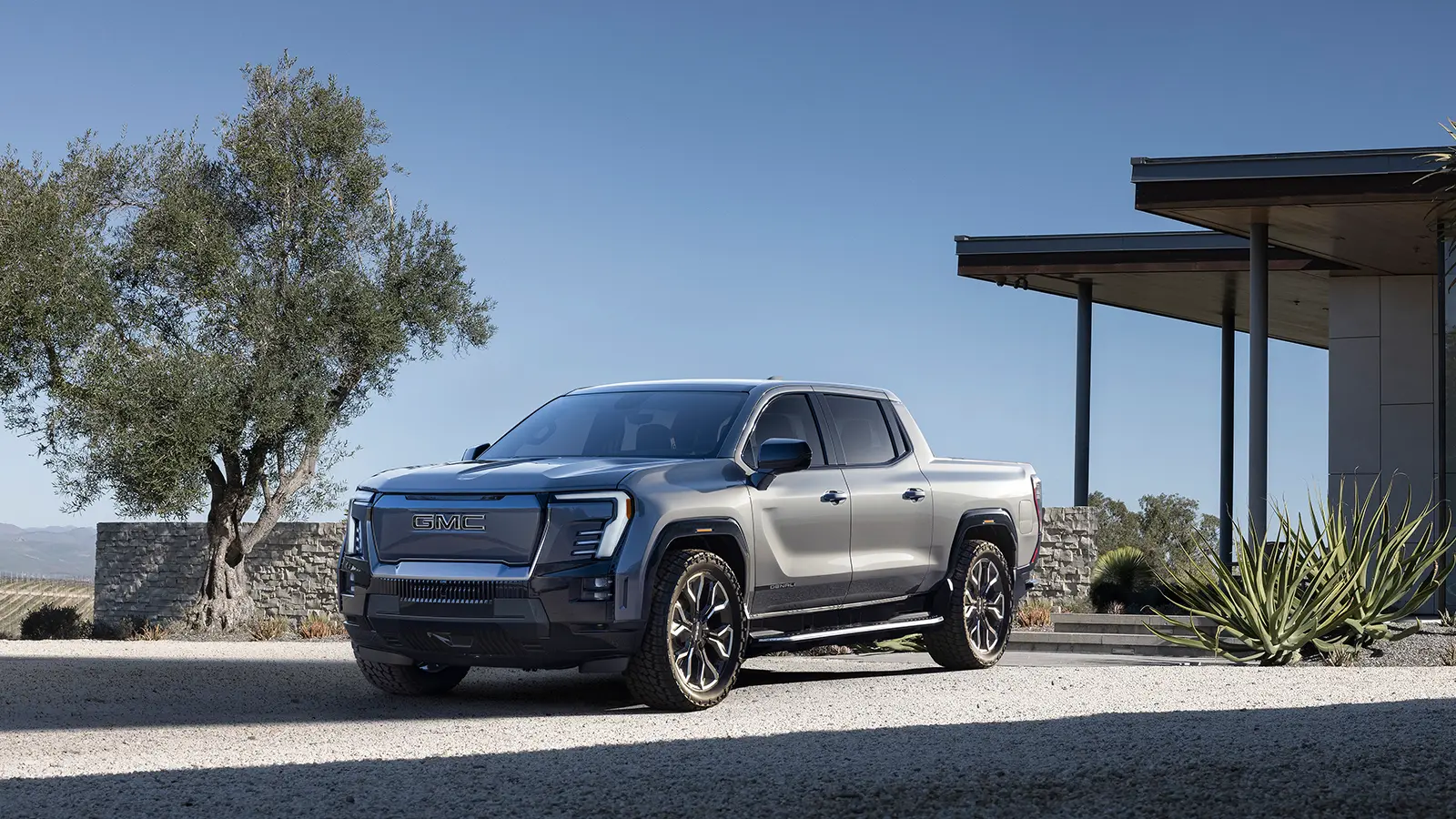
5. GMC Sierra Denali (6.2L V8 with 10-Speed Transmission)
The GMC Sierra Denali is the epitome of luxury and performance combined into one stunning package. With its refined interior, advanced technology features, and powerful 6.2L V8 engine, the Sierra Denali stands out as one of the top luxury pickups in the industry.
The 6.2L V8 engine in the Denali delivers 420 horsepower and 460 lb-ft of torque, offering exceptional power for towing, hauling, and on-road performance. Paired with the advanced 10-speed automatic transmission, the Denali offers a smooth and quiet driving experience, ideal for those who want to enjoy the power of a V8 engine without compromising on comfort or refinement.
What makes the 6.2L V8 engine in the Sierra Denali legendary is its performance capabilities and how seamlessly it integrates with the truck’s other luxury features. Whether towing a boat to the lake, carrying heavy gear, or cruising down the highway, the Denali’s powertrain offers the perfect balance of strength and sophistication.
The 10-speed transmission enhances the truck’s driving experience by providing quick, precise gear shifts, further improving fuel efficiency and responsiveness. This level of performance ensures that the Sierra Denali is not only a luxury vehicle but also a reliable and capable truck that can handle a wide range of tasks.
With regular maintenance, the 6.2L V8 engine in the Sierra Denali is known to offer outstanding reliability, with many owners reporting that their trucks continue to perform at a high level well beyond the 200,000-mile mark. The engine’s combination of raw power, smooth operation, and long-term durability makes it one of the most revered powertrains in the GMC lineup.
The Denali trim, with its high-end features and refined engineering, coupled with the legendary 6.2L V8 engine, offers a driving experience that is both powerful and luxurious. For those who seek the best of both worlds—performance and comfort—the GMC Sierra Denali is undoubtedly one of the best choices available.
5 GMC Trucks with Unreliable Powertrains

1. GMC Canyon (5.3L V8 Engine)
The GMC Canyon, though known for its compact size and rugged charm, has faced significant issues when it comes to the 5.3L V8 engine. This engine, which was offered as an optional upgrade for certain model years, unfortunately gained a reputation for being one of the most problematic powertrains in the GMC lineup.
While the 5.3L V8 engine offers decent horsepower and torque, delivering around 355 horsepower and 383 lb-ft of torque, it has been plagued with a series of issues that make it less desirable for long-term ownership.
One of the most common complaints from owners of the Canyon with this engine is related to excessive oil consumption. Many drivers report that the engine consumes an alarming amount of oil between changes, which can lead to engine damage if not closely monitored.
Additionally, the 5.3L V8 engine in the GMC Canyon has been notorious for experiencing issues with the Active Fuel Management (AFM) system. AFM is a technology that shuts down half of the engine’s cylinders under light load conditions to improve fuel efficiency.
However, in the case of the Canyon, the AFM system has been known to malfunction, causing rough idling, reduced power, and even stalling.
Over time, this can lead to serious engine issues that are costly to repair. Another common complaint is the failure of the timing chain, which is an essential component of the engine’s operation.
When the timing chain begins to stretch or break, it can cause catastrophic engine failure, which often requires a complete engine replacement. These persistent issues with the 5.3L V8 engine contribute to its reputation for unreliability, making it a powertrain that many potential buyers of the Canyon might want to avoid.
The combination of these problems has left many GMC Canyon owners frustrated, especially when they realize that the cost of repairs and replacement parts for the 5.3L V8 engine can be prohibitively expensive.
These issues not only diminish the truck’s resale value but also increase the long-term cost of ownership, which is something that many drivers of the Canyon with this engine find discouraging.
While the Canyon is otherwise a capable midsize truck, the unreliability of the 5.3L V8 engine has undoubtedly earned it a spot on the list of GMC trucks with problematic powertrains. The engine’s issues with oil consumption, AFM malfunctions, and timing chain failures make it a less-than-ideal choice for those seeking a dependable truck for daily driving or heavy-duty use.
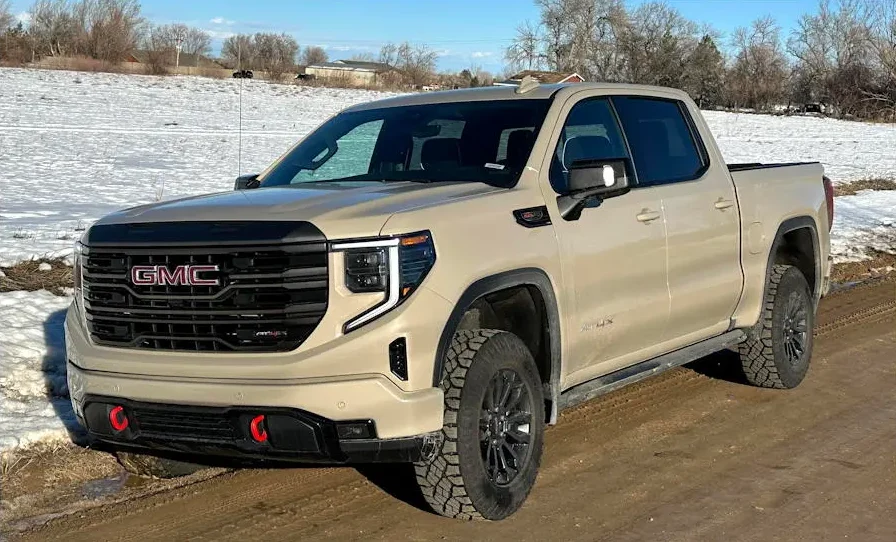
2. GMC Sierra 1500 (8-Speed Automatic Transmission with 5.3L V8)
The GMC Sierra 1500 with the 8-speed automatic transmission paired to the 5.3L V8 engine has also earned a reputation for unreliable performance over the years. While this powertrain combination was introduced to improve fuel economy and drive dynamics, it has often failed to live up to those promises.
The 8-speed automatic transmission, while technically advanced, has been the source of numerous complaints from Sierra owners. Many drivers report that the transmission hesitates or lurches when shifting gears, particularly when accelerating from a stop.
This erratic shifting can be both frustrating and concerning, especially when trying to maintain smooth acceleration or towing a heavy load. In some cases, the transmission can slip between gears or fail to engage the correct gear altogether, which can lead to a loss of power and an unsafe driving experience.
Furthermore, the 5.3L V8 engine’s performance in this combination has also been less than stellar. While it offers decent horsepower, the 5.3L engine is often criticized for its lack of refinement when paired with the 8-speed transmission.
The engine can feel underpowered at times, especially when towing or carrying heavy loads, and the driving experience is less than smooth. The mismatch between the engine and transmission has been a point of frustration for many owners, as the truck’s performance feels sluggish and inefficient, particularly in more demanding driving conditions.
In addition to these performance-related issues, the 5.3L V8 engine in the Sierra 1500 is susceptible to the same oil consumption problems and AFM malfunctions that plague other models in the GMC lineup. These issues further contribute to the unreliability of this powertrain, making it a less appealing choice for buyers who prioritize performance and dependability.
Repairs for the 8-speed automatic transmission can be both costly and time-consuming, often requiring a complete transmission rebuild or replacement to resolve the shifting issues. Additionally, the oil consumption problems and AFM malfunctions can lead to expensive engine repairs, particularly if the issues go unaddressed for an extended period.
These recurring problems have led many owners of the Sierra 1500 with the 5.3L V8 and 8-speed automatic transmission to express dissatisfaction with their vehicles, as the cost of repairs can quickly add up over time.
For those in the market for a full-size truck, the combination of the 5.3L V8 engine and the 8-speed automatic transmission should be approached with caution, as it is widely regarded as one of the more unreliable powertrain options offered by GMC in recent years.

3. GMC Sierra 1500 (4.3L V6 Engine)
The 4.3L V6 engine in the GMC Sierra 1500 has often been viewed as a less-than-reliable option for those looking for a dependable full-size truck. While the engine is certainly a more budget-friendly choice compared to the larger V8 options, its performance and longevity have raised concerns among many owners.
With only 285 horsepower and 305 lb-ft of torque, the 4.3L V6 is noticeably underpowered compared to its V8 counterparts, making it less capable when it comes to towing and hauling heavy loads.
The engine’s performance is often described as sluggish, especially when the truck is fully loaded or when towing anything above a light trailer. This lack of power can make the truck feel underwhelming, particularly for those who expect the heavy-duty capabilities that a full-size truck like the Sierra 1500 should deliver.
In addition to the power deficit, the 4.3L V6 engine has been associated with reliability issues, particularly when it comes to the fuel system and ignition components.
One of the most common problems reported by owners is issues with the fuel injectors, which can become clogged or malfunction over time, leading to poor fuel efficiency, rough idling, and misfires.
These fuel system issues often require expensive repairs, as the injectors must be replaced or cleaned to restore proper engine performance.
Additionally, the engine’s ignition system can also experience failures, resulting in difficulty starting the truck or a complete breakdown of the engine. These issues are often costly to fix, and in some cases, can lead to premature engine failure if not addressed promptly.
The 4.3L V6 engine in the Sierra 1500 is also notorious for having poor fuel economy, especially when compared to newer and more efficient powertrains in the truck market. Despite being a smaller engine, the 4.3L V6 often struggles to deliver the kind of fuel efficiency that buyers expect from a mid-size engine in a full-size truck.
This inefficiency, combined with the frequent fuel system and ignition problems, contributes to the engine’s reputation for unreliability.
While the 4.3L V6 may be an affordable option upfront, the long-term cost of ownership can be significant due to the frequent repairs and poor fuel economy, making it a less attractive choice for many truck buyers looking for a dependable and cost-effective vehicle.
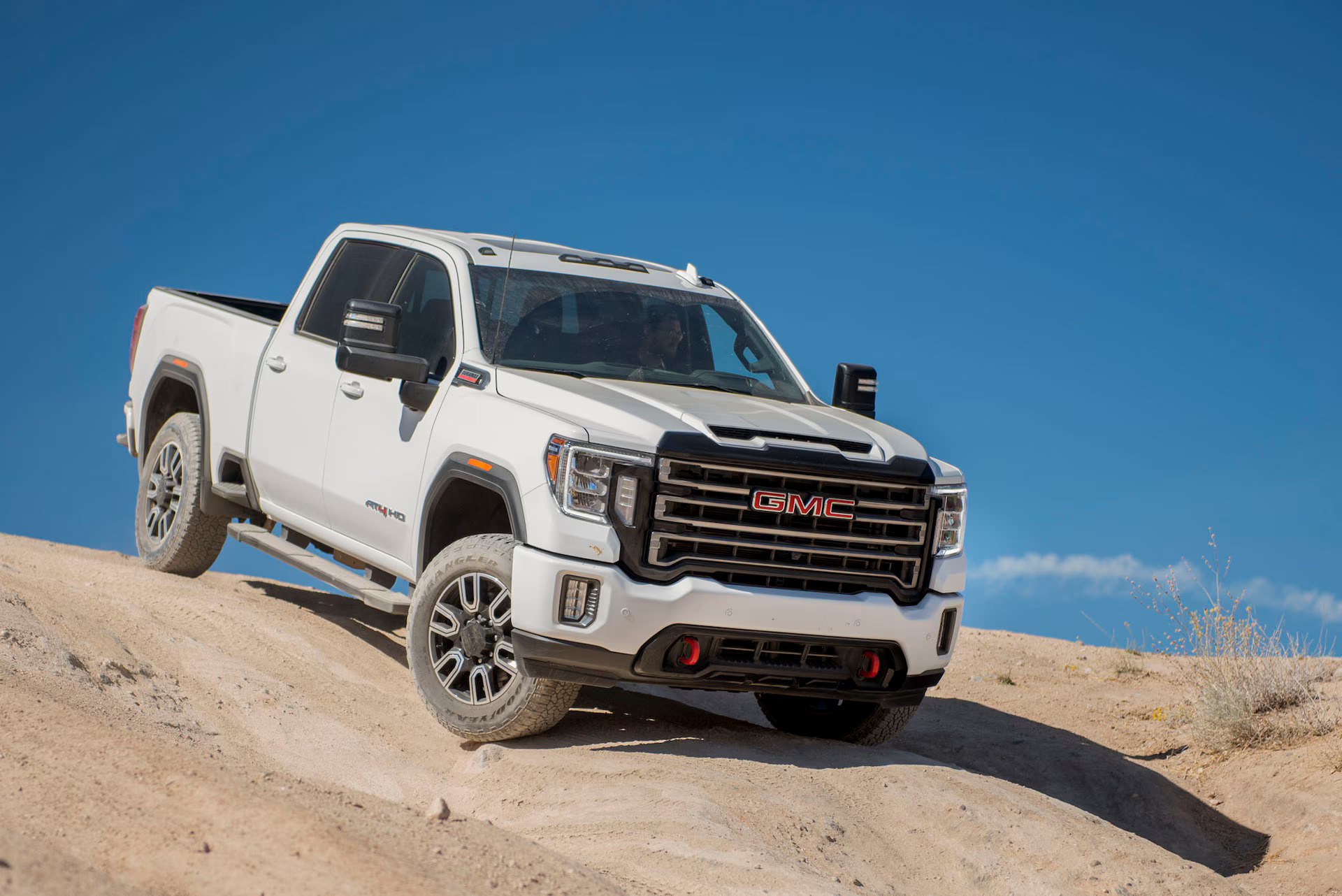
4. GMC Sierra 2500HD (Allison Transmission Issues)
The GMC Sierra 2500HD, known for its impressive towing and hauling capabilities, has had its fair share of issues when it comes to its Allison automatic transmission.
While the Allison transmission is often regarded as one of the best heavy-duty transmissions in the industry, the version found in some Sierra 2500HD models has been plagued with issues that detract from its otherwise robust performance.
One of the most common complaints is related to harsh shifting, particularly when the truck is under load or when the transmission is cold. Many drivers have reported that the transmission struggles to shift smoothly, with hard shifts that can cause jarring jolts or even cause the truck to lose power during acceleration.
These issues are particularly problematic when towing or driving in mountainous terrain, where smooth gear transitions are essential for maintaining performance.
Additionally, the Allison transmission in the Sierra 2500HD has been known to experience premature failure, particularly in models with higher mileage or those that have been heavily used for towing. This premature failure can result in costly repairs, with some owners reporting transmission replacements that cost several thousand dollars.
While the Allison transmission is designed to handle heavy-duty loads, it seems that in some Sierra 2500HD trucks, it simply doesn’t live up to the reliability standards expected of such a critical component.
Problems such as slipping, delayed shifting, and complete transmission failure have been common in some model years, making it a major point of frustration for many owners.
The combination of these transmission issues, along with the truck’s high towing and hauling capacities, leads to a significant increase in the cost of ownership. Transmission repairs and replacements are not only expensive but also time-consuming, often leaving the truck out of commission for extended periods.
For those who rely on their Sierra 2500HD for work purposes, this can result in a significant loss of productivity and revenue. Although the truck itself is a strong contender in the heavy-duty market, the unreliable Allison transmission has earned it a spot among GMC trucks with less-than-stellar powertrains.
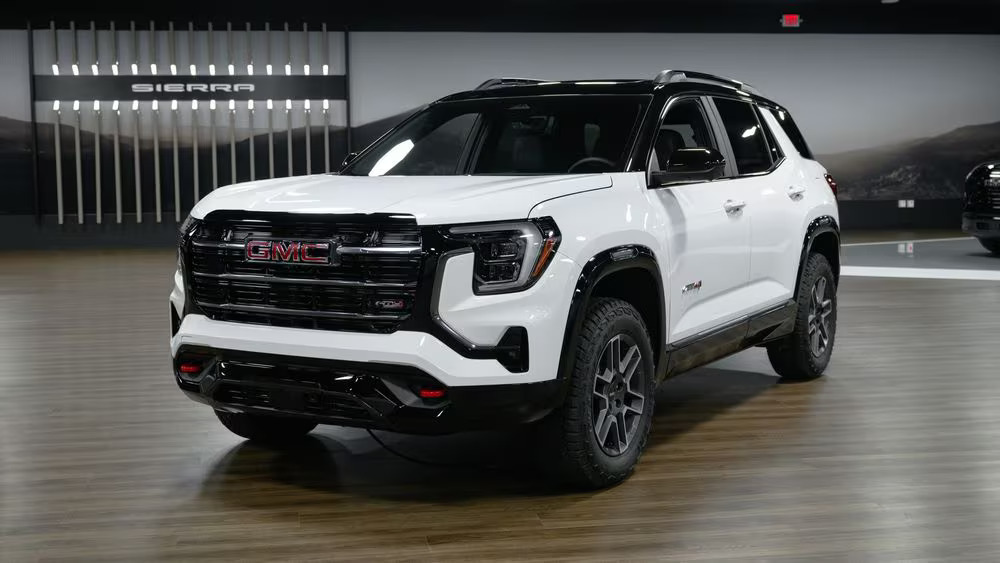
5. GMC Terrain (1.4L Turbocharged Engine)
The GMC Terrain, a compact SUV, has had its own share of issues with the 1.4L turbocharged engine, which has garnered a reputation for being one of the less reliable powertrains in the GMC lineup.
Despite offering decent fuel economy and adequate power for daily driving, the 1.4L turbocharged engine has been plagued by multiple issues that have led to frustration among owners.
One of the primary concerns with this engine is its tendency to suffer from overheating issues. Many owners have reported that the engine runs hotter than expected, leading to a risk of engine damage if the issue goes unaddressed.
This overheating problem often leads to the engine’s cooling system malfunctioning, which in turn can cause further issues such as poor performance, rough idling, and even complete engine failure.
Another common problem with the 1.4L turbocharged engine is its tendency to burn oil at a rapid rate, similar to the problems seen in some other GMC engines. This excessive oil consumption can lead to a range of issues, including engine knocking, low oil pressure, and eventual engine damage if the oil levels are not frequently monitored and topped off.
These problems often require costly repairs and replacements of various engine components, leading to high maintenance costs for owners.
Furthermore, the turbocharger itself has been known to fail prematurely, especially in models with higher mileage, leading to decreased performance and a lack of power. Replacing the turbocharger can be expensive, and many owners find themselves faced with costly repairs long before they should expect to experience such issues.
The combination of overheating problems, excessive oil consumption, and premature turbocharger failure makes the 1.4L turbocharged engine in the GMC Terrain a less-than-ideal choice for those seeking a reliable and long-lasting vehicle.
While the Terrain may be a practical option for city driving or light commuting, its powertrain issues have led many owners to seek alternatives, especially when considering the high costs of repairs and the potential for premature engine failure.
For those looking for a dependable, low-maintenance compact SUV, the Terrain with the 1.4L turbocharged engine is often best avoided due to its ongoing reliability issues.
Also Read: 5 Cars That Keep Their Cool In Summer And 5 That Turn Into Ovens
While GMC has certainly earned its place as one of the most respected and capable truck manufacturers, it’s clear that some of its models have struggled with problematic powertrains over the years.
The trucks listed here have garnered attention for their engine and transmission issues, leading to a range of frustrating problems for their owners, from excessive oil consumption to failed transmissions.
These powertrain failures are more than just minor inconveniences; they can be expensive to repair and, in some cases, can render the vehicle unreliable for long-term use, especially for those who rely on their trucks for work purposes.
The GMC Canyon, for instance, with its 5.3L V8 engine, falls short in terms of reliability, plagued by issues such as oil consumption, engine knocking, and the malfunctioning Active Fuel Management (AFM) system.
Similarly, the GMC Sierra 1500, when paired with the 8-speed automatic transmission and the 5.3L V8, suffers from harsh shifting, slipping between gears, and oil consumption problems, ultimately leading to a less-than-optimal driving experience.
The 4.3L V6 engine in the Sierra 1500 also fails to provide the power and efficiency one might expect from a full-size truck, and its fuel system and ignition issues only add to the list of concerns for potential buyers.
Additionally, the GMC Sierra 2500HD’s transmission issues, despite its formidable towing and hauling capabilities, demonstrate how a trusted transmission like the Allison 6-speed can fail prematurely, leading to costly repairs that diminish the truck’s reliability.
Even the smaller GMC Terrain, with its 1.4L turbocharged engine, falls victim to overheating and oil consumption issues, making it a less-than-ideal choice for those in need of a dependable compact SUV.
While GMC’s powertrain issues in these trucks are significant, they should not overshadow the many other vehicles in the brand’s lineup that are renowned for their dependability, such as the Sierra 2500HD with its Duramax 6.6L Turbo-Diesel engine or the Sierra 1500 with the 6.2L V8.
GMC continues to produce high-quality trucks, and many of their powertrains are known for their durability and performance. However, the trucks listed in this article highlight how even established manufacturers can face quality control issues or design flaws that impact the long-term reliability of certain powertrains.
For potential buyers, the key takeaway is to thoroughly research a vehicle before making a purchase, especially if you are considering one of the trucks discussed here. Understanding the common problems associated with certain powertrains can help mitigate the risk of unexpected expenses and can assist in making an informed decision.
For current owners, knowing what to expect from these unreliable powertrains can help you stay ahead of necessary maintenance and repairs.
Despite these powertrain setbacks, GMC trucks remain a formidable presence in the automotive world, offering rugged performance, innovation, and power that, when paired with the right engine and transmission, can deliver an exceptional driving experience for years to come.

